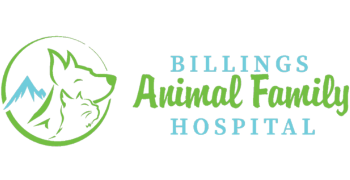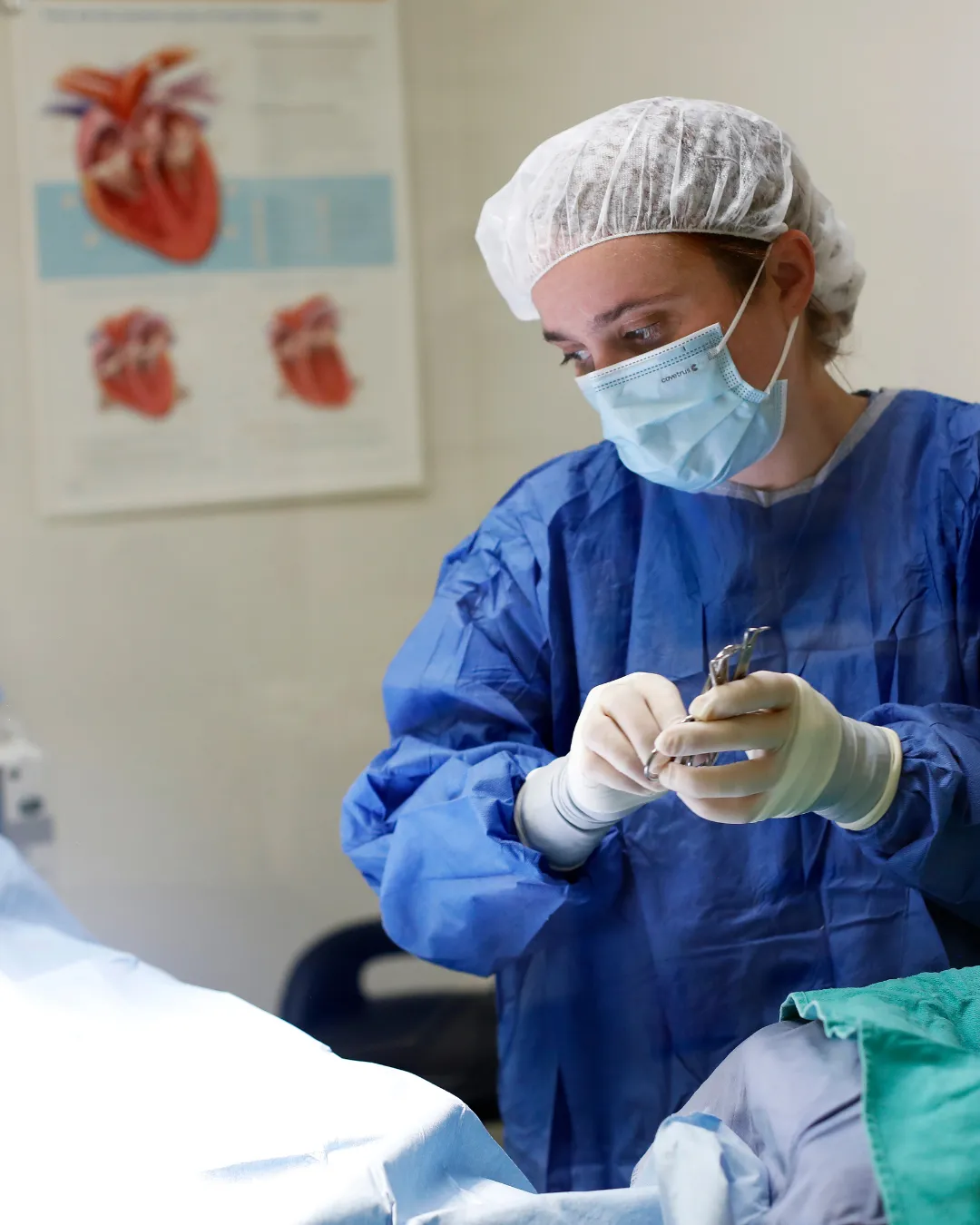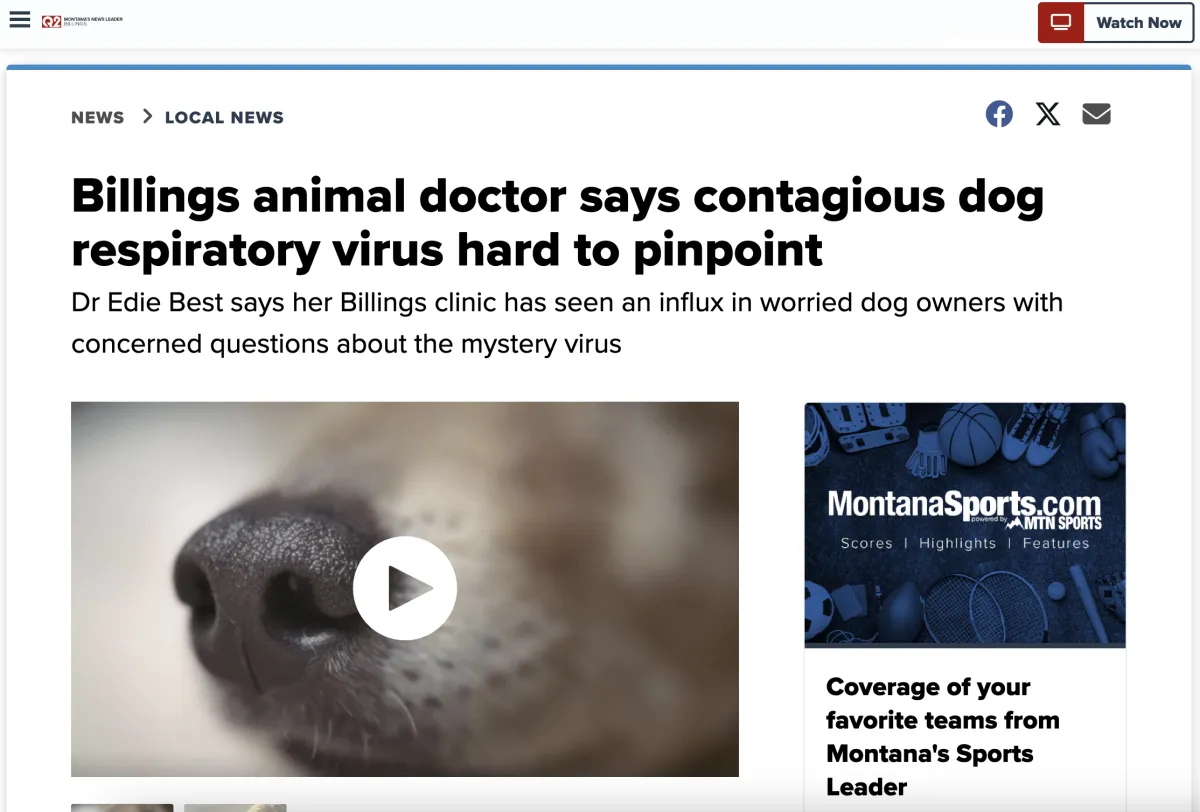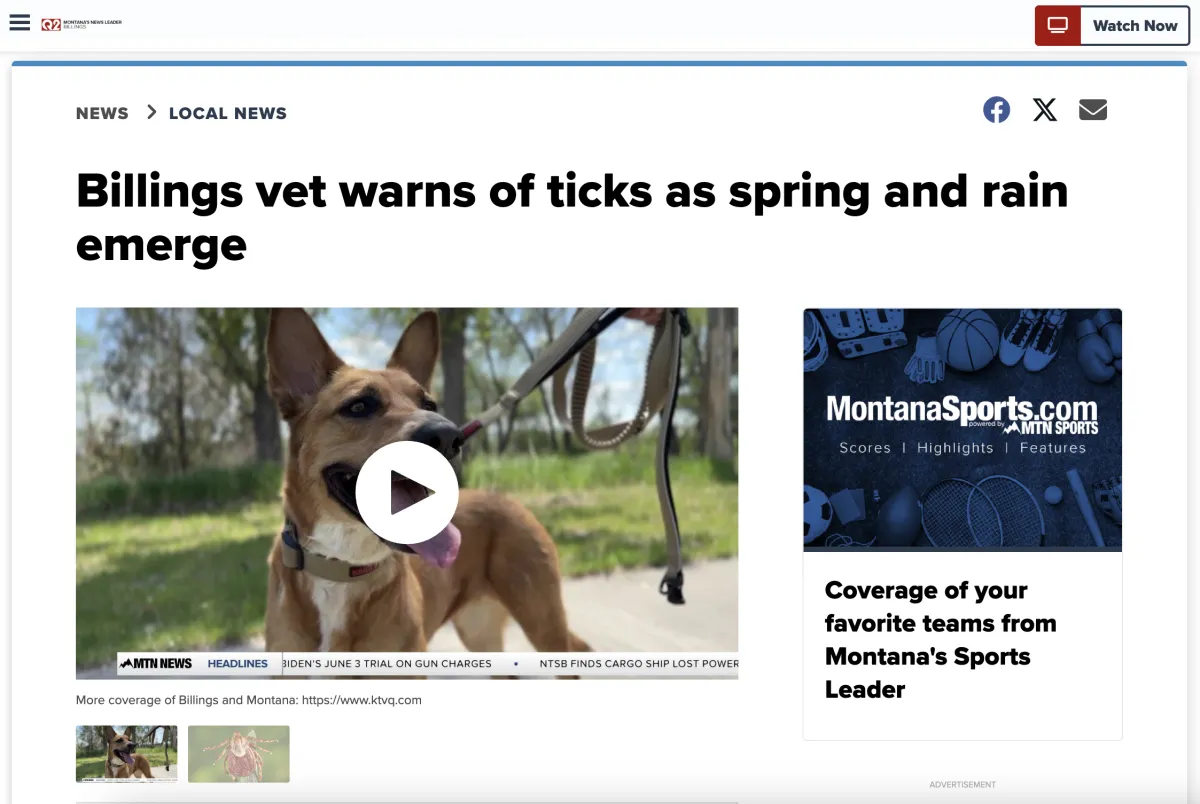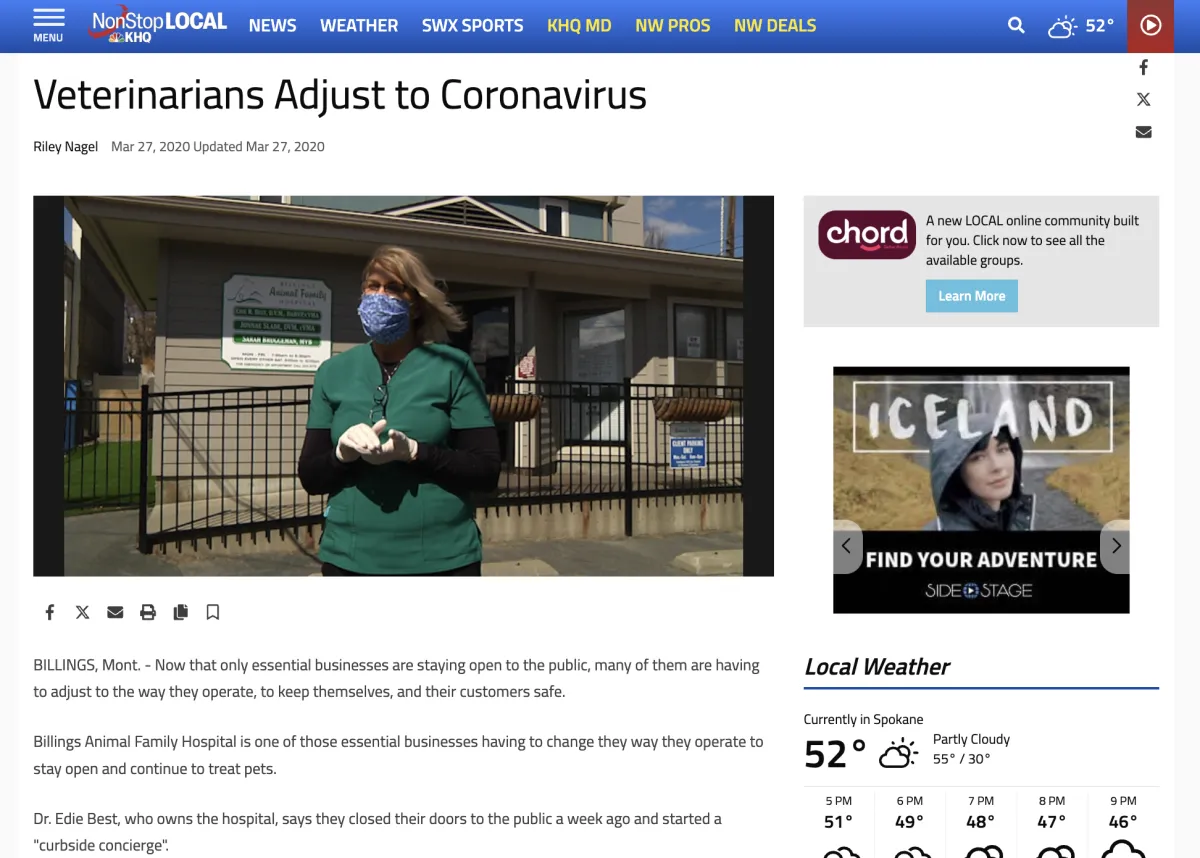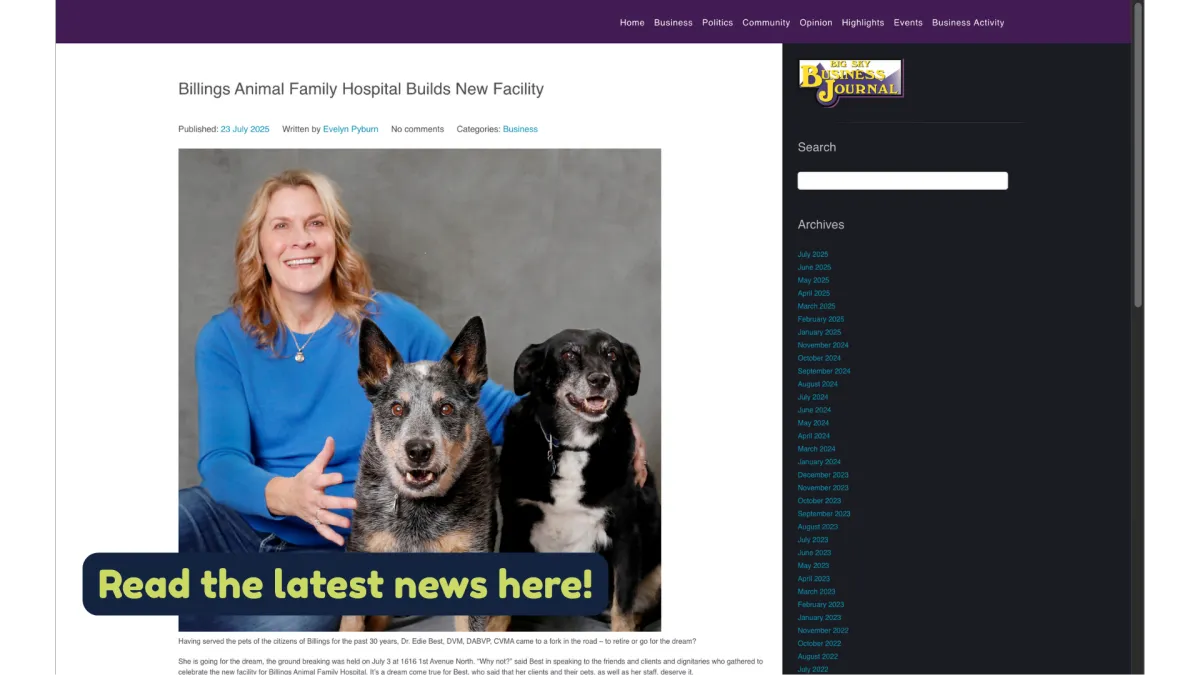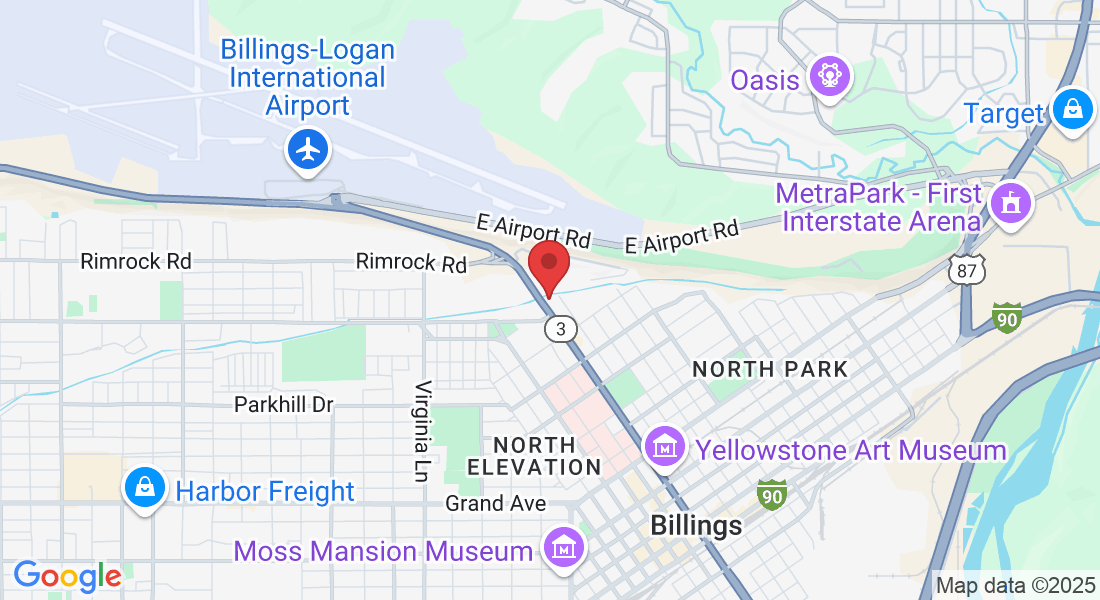1321 N 27th St, Billings MT 59101
Give us a call!
We're available by phone starting at
7:00 AM, Monday to Friday.
406-245-4772
MONDAY, WEDNESDAY, FRIDAY: 7:00am - 5:30pm
TUESDAY, THURSDAY: 7:00am - 7:00pm
WEEKENDS: CLOSED
(Closed from 1PM-2PM daily for lunch)
1321 N 27th St, Billings MT 59101
Give us a call!
We're available by phone starting at
7:00 AM, Monday to Friday.
406-245-4772
Clinic Schedules
MONDAY, WEDNESDAY, FRIDAY: 7:00am - 5:30pm
TUESDAY, THURSDAY: 7:00am - 7:00pm
WEEKENDS: CLOSED
(Closed from 1PM-2PM daily for lunch)
Welcome to Billings Animal Family Hospital
A place where your pets experience The BEST care to live happy and healthy lives.

American Board of Veterinary Practitioners Certified

Animal Chiropractic Program Certified

Animal Behavior Certified

Certified Veterinary Medical Acupuncture

State-of-the-art pet care facilities

Orthopedic Surgery
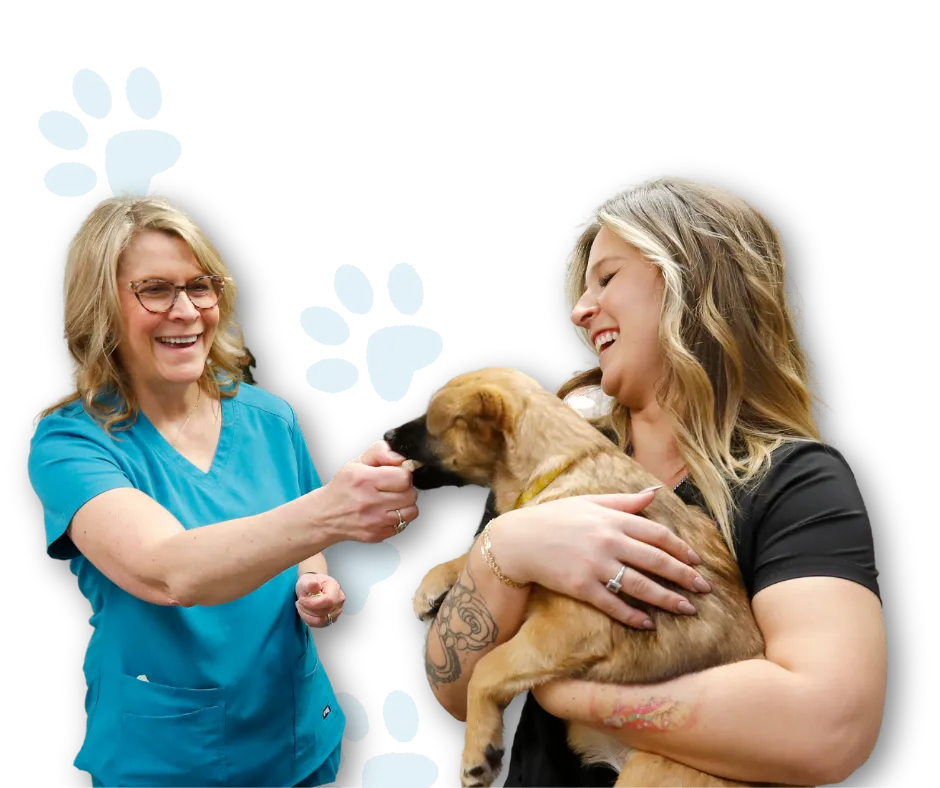
Our Story
Our love for animals runs deep, rooted in a heartfelt commitment to serving those who cannot speak for themselves.
Growing up on a ranch, Dr. Edie Best developed a love for animals that sparked her passion for pet care. Driven to consistently deliver quality and compassionate care, she created a state-of-the-art hospital, continually pushing the boundaries of excellence to become the BEST of the best.
How can we put your mind at ease?
Since 1995, families have trusted us to guide them in the uncertainties of pet health, aging, and behavior. We’re here to offer dedicated care and protection for your cherished pets.
Schedule a Comprehensive
Wellness Check
Our comprehensive wellness program supports your pet’s health at every stage, focusing on early detection, vaccinations, nutrition, and dental care.
Get Specialized Pet Care & Diagnostics
From cancer screenings to orthopedic evaluations and non-invasive imaging, we prioritize your pet’s health journey with innovative techniques and compassionate support.
Explore Alternative Therapies & Pain Management
Our holistic program includes acupuncture, chiropractic care, and therapeutic laser therapy, which promote faster healing and reduce pain for pets and their owners.
Plan for End of Life &
Senior Support
Come in for health screening and early detection of age-related diseases, and when the worst comes to pass, we’ll help your forever friend cross the rainbow bridge pain-free.
Care for Exotic Pets
We give your extraordinary pets the love and care they deserve. Our services include wellness exams and vaccinations for various exotic pets.
Meet your Doctors!
a team of excellence!


Dr. Edie R. Best
DVM, DABVP, cVMA


Dr. Sarah Bruggeman
MVB


Dr. Esther Musselman
DVM, cAVCA


Dr. Mark Albrecht
Orthopedic Surgeon
Our doctors are associated with...



Be Prepared When It Matters Most
Emergencies can happen when you least expect them. Download our free Emergency Vet Contact Card to have all the essential details at your fingertips, whether you're at home or on the go.
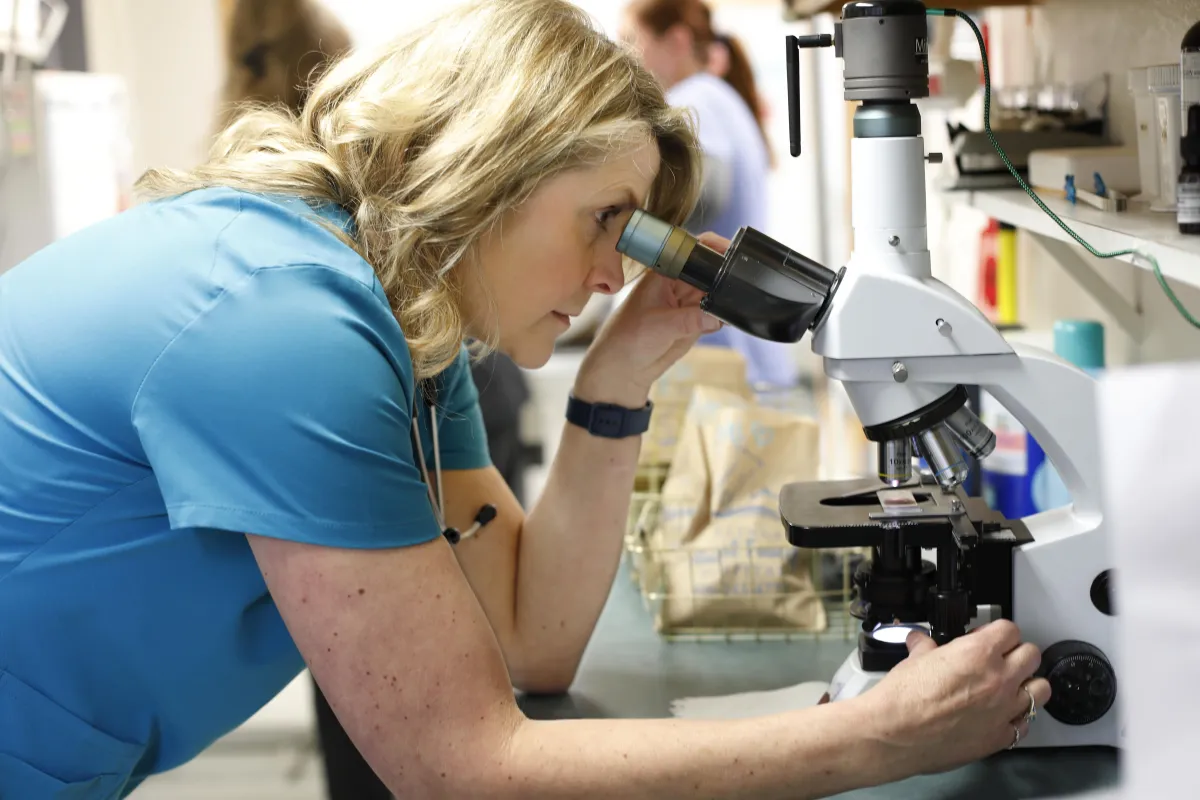
We're here to listen, support, and heal!
Every visit is filled with love, attention, and healing, so you enjoy more time with your happy, healthy, and pain-free pet.
1321 N 27th St, Billings MT 59101
Give us a call!
We're available by phone starting
at 7:00 AM, Monday to Friday.
406-245-4772
Connect with us
and our furry friends!
Website designed and developed by
